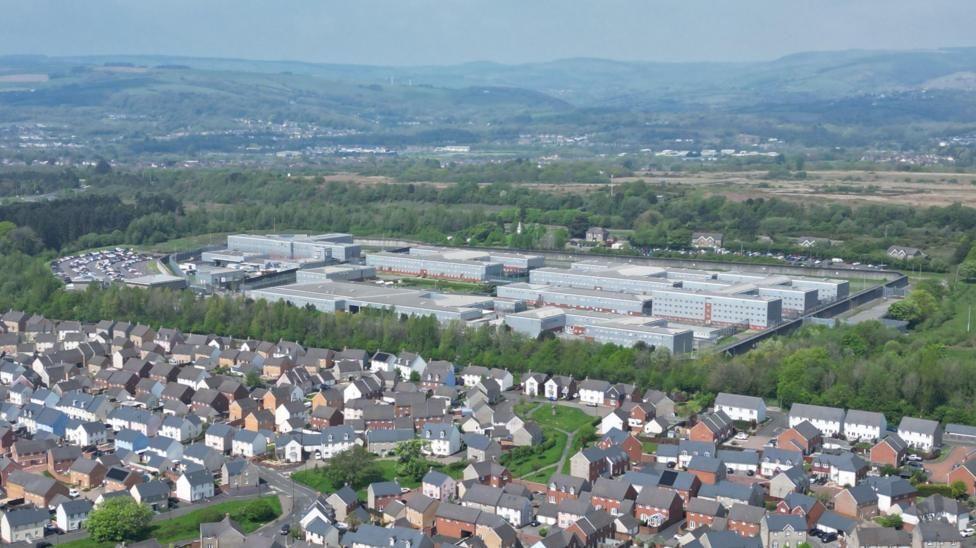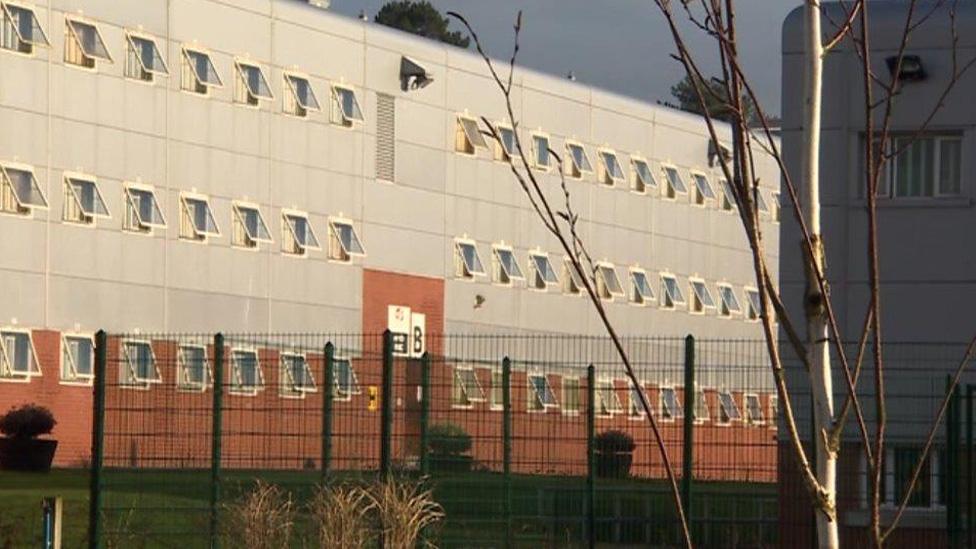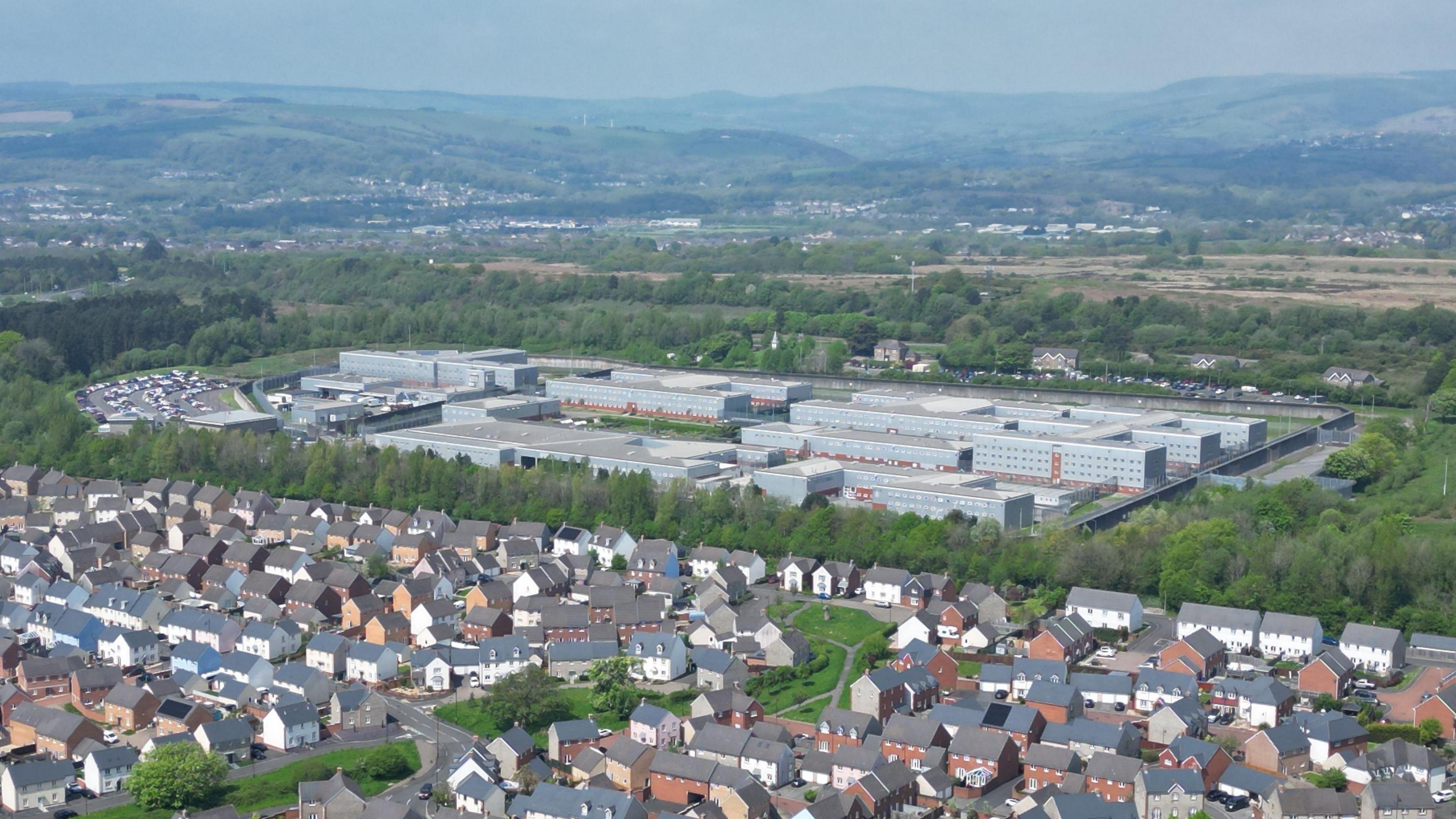Drugs smuggled in drones and nappies - prison boss

Bosses of Parc prison were grilled by MPs following 17 deaths at the site this year
- Published
Drugs can be brought into a prison through drone drops, staff corruption and children's nappies, its bosses have said.
The director of HMP Parc in Bridgend, which is run by private company G4S, was grilled by MPs on the Welsh affairs select committee following the deaths of 17 inmates.
When asked how most contraband was smuggled into the prison, Will Styles said "there are a number of ingress routes".
"It can be thrown over the wall, it can be brought in by visitors - secreted in their bodily orifices - or in children's nappies… staff corruption is an issue in many prisons," he added.
He said drone drops "being organised by organised crime gangs" was one of the "key routes" that was "certainly being experienced at Parc".
"In our case, organised crime gangs which we think are centred around Wales and the Midlands," he said.
Gordon Brockington, G4S's managing director, said the "vast majority of staff that work at Parc are not corrupt" but it was one route for smuggling contraband.
Mr Brockington said: "It takes 20 seconds to get a drone over the wall, drugs into the prison, and back out again. And you're looking for very, very small amounts of drugs that create an enormous problem in a prison."
Parc Prison now much more stable, says minister
- Published18 September 2024
Director steps down at prison where 10 inmates died
- Published4 June 2024
The committee was hearing evidence on the governance and culture of Parc, and members were told safety at the prison had improved.
There have been 17 inmate deaths on the estate this year and several prison staff have been arrested on suspicion of assault and misconduct in public office.
Mr Brockington said eight of these were declared natural causes of deaths, three were self-inflicted and five were believed to be drug-related.
Parc had an ageing population, he added, with 16% of prisoners over the age of 50, and was one of two palliative care centres.
He said another "significant issue" was the introduction of nitazenes - a type of synthetic opioid - into the prison in the first half of the year.
"These are drugs that are up to 1,000 times more powerful than morphine."
Ruth Jones, the committee chair and Labour MP for Newport West and Islwyn, asked if the prison could guarantee inmates were safe.
Mr Styles said "an awful lot of work" had been done to improve safety and security.
"I think we've made really significant progress in improving safety outcomes," he said.
"Certainly when we look at measures including self-harm and violence the metrics have improved very significantly."
There had not been a non-natural death at the prison since June, he added.
"The feedback from the men is also that things are improving in terms of conditions for them, in terms of the regime and in terms of safety."
- Published20 March 2024

- Published15 May 2024
